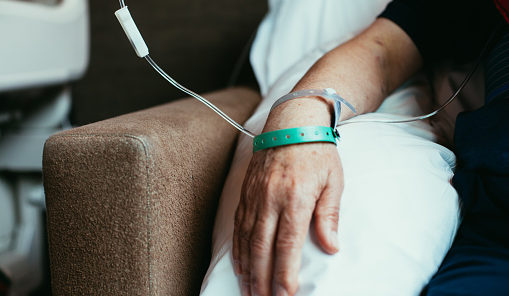
The quality of muscle (muscle radiodensity) may be more important than simply putting on size for patients with advanced cancer, according to a study.
“Notably, while patients’ muscle mass only significantly correlated with survival, we found that patients’ muscle radiodensity was significantly associated with their physical and psychological symptoms, healthcare utilization, and survival outcomes,” the researchers wrote.
Low muscle mass (quantity) is a well-documented problem for patients with advanced cancer, but there is less known about the role of muscle radiodensity (quality).
For the present study, patients hospitalized with advanced cancer between September 2014 and May 2016 reported physical and psychological symptoms, and underwent CT scans within 45 days of study enrollment. Regression models were implemented to determine how muscle mass and radiodensity correlated with patients’ symptom burden, hospital length of stay (LOS), readmissions, and survival.
Final analysis included 677 patients. The mean age was 62.86 ± 12.95 years, and 51.1% of patients were female. Older patients and women had lower muscle mass and radiodensity, while patients with a higher body mass index (BMI) had higher muscle mass and lower muscle radiodensity.
Patients with higher muscle mass and radiodensity had improved survival. However, higher radiodensity was also associated with lower Edmonton Symptom Assessment System physical and total symptoms, lower Patient Health Questionnaire-4 depression and anxiety symptoms, decreased LOS, and decreased risks of readmission or death in 90 days.
“These findings build upon existing research showing unfavorable outcomes associated with poor muscle health in cancer patients, while also underscoring the added utility of assessing muscle radiodensity to measure muscle health. Muscle radiodensity provides information on the amount of intramuscular adipose tissue (fatty tissue within the muscle), and our findings suggest that higher BMI may contribute to that infiltration, resulting in lower muscle radiodensity,” said lead researcher Ryan D. Nipp, MD, MPH, Mass General Hospital Cancer Center and Harvard Medical School, in a press release.
“Increasing the quality of one’s weight through muscle development could be more important than simply trying to regain body weight to address cancer-related sarcopenia,” said Scott J. Capozza, PT, MSPT, Board Certified Clinical Specialist in Oncologic Physical Therapy, Smilow Cancer Hospital and Yale Cancer Center, who was not part of the present study. “Skilled clinicians, such as oncology certified dietitians and physiotherapists, are able to develop evidence-based interventions to safely increase the quality of muscle mass.”
The study was published in the March issue of the Journal of the National Comprehensive Cancer Network.
Credit: Original article published here.









